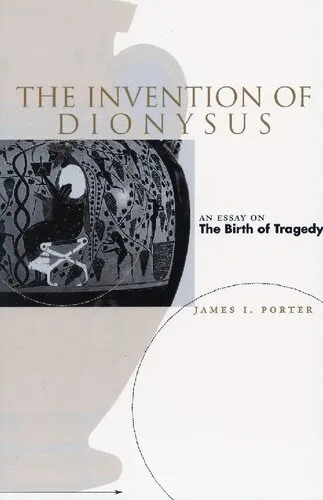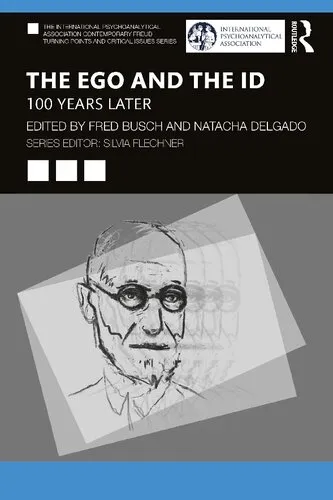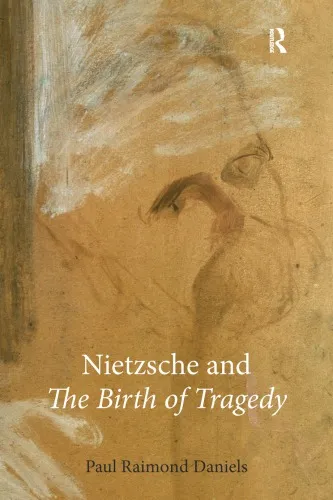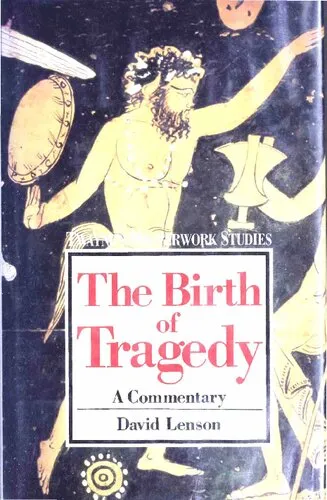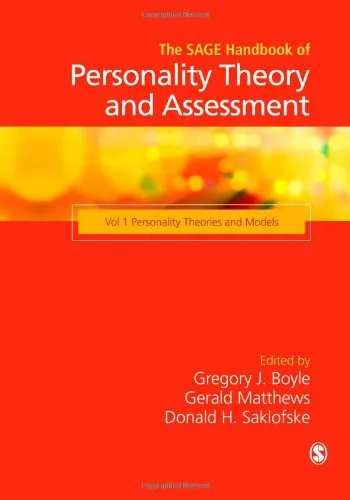The Invention of Dionysus: An Essay on The Birth of Tragedy
4.0
Reviews from our users

You Can Ask your questions from this book's AI after Login
Each download or ask from book AI costs 2 points. To earn more free points, please visit the Points Guide Page and complete some valuable actions.Related Refrences:
Welcome to an exploration of 'The Invention of Dionysus: An Essay on The Birth of Tragedy'. This seminal work, authored by James I. Porter, delves into Friedrich Nietzsche's pivotal text, 'The Birth of Tragedy', analyzing its profound impact on modern thought and the enduring legacy of its philosophical inquiries. Let's embark on a journey through a detailed summary, uncover key takeaways, reflect on memorable quotes, and understand why this book holds significant scholarly importance.
Detailed Summary of the Book
In 'The Invention of Dionysus', James I. Porter provides a comprehensive critique of Nietzsche's original work, 'The Birth of Tragedy', first published in 1872. Porter argues that Nietzsche's treatment of ancient Greek tragedy is not just a literary analysis but a revolutionary philosophical endeavor that reshaped our understanding of art, culture, and existence. By examining the juxtaposition of the Apollonian and Dionysian principles, Porter highlights Nietzsche's exploration of the tension between order and chaos, reason and instinct, and how these forces contribute to the creation of art and meaning.
Porter's essay scrutinizes Nietzsche’s notion that the birth of Greek tragedy was an expression of Dionysian mysteries and the embodiment of primal aesthetic and existential truths. He challenges contemporary interpretations and suggests that Nietzsche conceived his work as a philosophical breakthrough, aiming to provoke a reevaluation of cultural norms and artistic expressions. Through rigorous textual analysis and contextual exploration, Porter unveils Nietzsche's intent to awaken a Dionysian spirit within modern society—a call to embrace life with passion, creativity, and authenticity.
Key Takeaways
- The book highlights Nietzsche's radical departure from traditional aesthetics and his innovative perception of the Greek tragedy's role in cultural evolution.
- Porter argues that Nietzsche's dichotomy between the Apollonian and Dionysian principles is a metaphor for human life, emphasizing the need to balance rationality with emotional depth.
- Nietzsche's work is presented as a philosophical manifesto that invites readers to question conventional morality and embrace a more liberated outlook on art and existence.
- The essay demonstrates how Nietzsche's ideas laid the groundwork for existentialism and subsequent philosophical discourses.
Famous Quotes from the Book
"Nietzsche's 'The Birth of Tragedy' is less about Greek art per se and more about the modern struggle to find meaning in a world that often appears disenchanted."
"The Dionysian is not mere chaos, but a vital force that challenges us to live more authentically and to embrace the fullness of our human experience."
Why This Book Matters
James I. Porter's 'The Invention of Dionysus' is not merely an academic exploration of Nietzsche's thoughts; it is an invitation to engage with the philosophical underpinnings that have shaped modern perceptions of art and society. By revisiting Nietzsche's text through a contemporary lens, Porter provides valuable insights into the existential questions that continue to resonate today. This book is essential reading for scholars of philosophy and literature, and for anyone interested in understanding how historical artistic movements influence modern ideologies.
Furthermore, 'The Invention of Dionysus' serves as a beacon for those who seek to comprehend the complexities of human experience through the transformative power of art. It affirms that Nietzsche's work is timeless, offering lessons that are as relevant today as they were over a century ago.
Free Direct Download
You Can Download this book after Login
Accessing books through legal platforms and public libraries not only supports the rights of authors and publishers but also contributes to the sustainability of reading culture. Before downloading, please take a moment to consider these options.
Find this book on other platforms:
WorldCat helps you find books in libraries worldwide.
See ratings, reviews, and discussions on Goodreads.
Find and buy rare or used books on AbeBooks.
1309
بازدید4.0
امتیاز0
نظر98%
رضایتReviews:
4.0
Based on 0 users review
Questions & Answers
Ask questions about this book or help others by answering
No questions yet. Be the first to ask!
